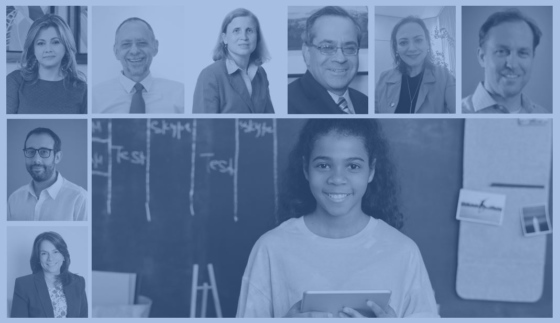Failing Grade
The goal of education is to promote learning. Sitting in classrooms is a weak proxy for knowing how to read, do math, and apply science. Latin America needs to worry less about schooling and more about learning.
This post is also available in: Español
Promoting digital transformation and the use of quality content in schools with limited connectivity is a major challenge in Latin America. Most Latin American countries do not meet the basic conditions to ensure meaningful connectivity for educational purposes. This connectivity deficit is even greater in rural areas than in urban centers.
To ensure that these schools are not left behind and that they integrate digital tools into their teaching and learning processes, it is not enough to guarantee internet connectivity. Meaningful connectivity for educational purposes is only supported if there is access to three elements: functional devices and relevant content platforms, in addition to connectivity. For a successful connectivity model in rural areas, it is also necessary to implement a monitoring and evaluation system to collect access data in real time and to have a strategy for teacher and technical support to ensure the appropriate use of technology.
HISPASAT's e-learning solution seeks to connect schools in remote areas to ensure access to internet connectivity and quality digital content that supports the development of their teachers and students. It is a program made up of three key elements: (1) digital infrastructure, (2) a comprehensive teacher support strategy, (3) a real-time data collection and monitoring system.
In this report, the Inter-American Dialogue documents and evaluates HISPASAT's e-learning solution as a comprehensive model with the potential to respond to the challenge of meaningfully connecting students and teachers in remote schools in Latin America.
The goal of education is to promote learning. Sitting in classrooms is a weak proxy for knowing how to read, do math, and apply science. Latin America needs to worry less about schooling and more about learning.
On May 13, the Inter-American Dialogue hosted the online webinar “Innovation and Technology in Latin America’s Post-Pandemic Recovery” with the participation of Carmen Pagés-Serra, Andrés Cadena, Ángel Melguizo, and Victor Muñoz.
The Education Program at the Dialogue and the World Bank hosted a webinar to present the new educational technology strategy, Reimagining Human Connections – Technology and Innovation in Education at the World Bank, as well as showcase the experiences of Brazil, Colombia, Panama, and Uruguay.
 Portada HISPASAT
Portada HISPASAT
 Video
Video
 Video
Video